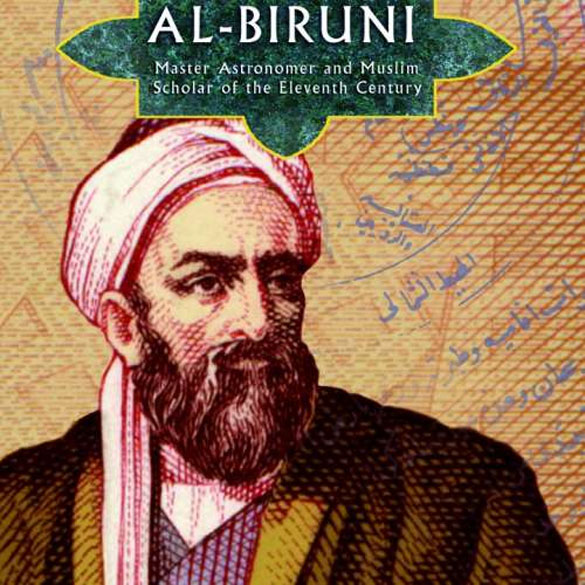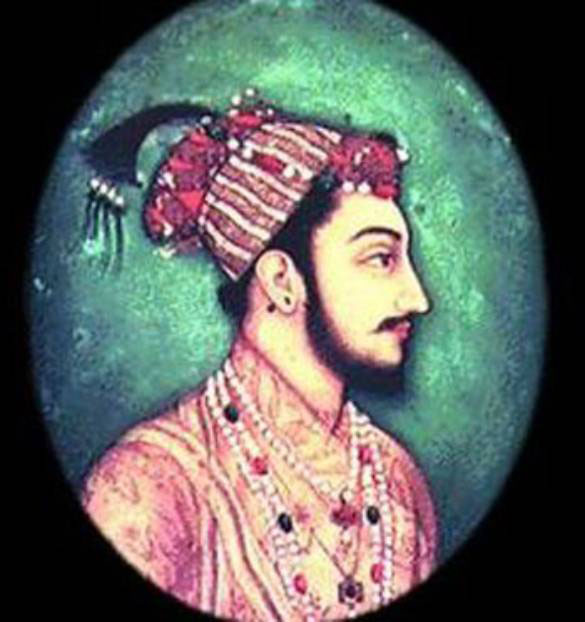By V.A. Mohamad Ashrof, New Age Islam
3 October 2020
The claim that any prophets did not come to a large subcontinent like India, which has been a separate land for centuries, is blasphemous.
Historically, the Judeo-Christian-Sabi people and primarily Zoroastrians, Hindus, Jains, Buddhists and Sikhs led the Muslim leadership to that position. (Hallaq, p. 327) The Vedas were honoured with the title of 'Dhimmi' in the Muslim Nation Complex. When they paid the jizya (protection tax) they were exempted from military service and to some extent enjoyed autonomy. These included the Christian-Jewish-Zoroastrian-Sabi and Hindu sects. (Ghani, p. 229)
The famous Arab historian Baladhuri (820-892) records that Muhammad ibn Qasim, the ruler of Sindh, declared that Hindu temples should be considered just as the Christian Church, the Jewish synagogue, and the Zoroastrian fire temple. (Baladhuri, p. 221)
It is a historical fact that Muhammad ibn Qasim, who conquered Sindh, treated the Hindu-Buddhist sects as dhimmi like the Jewish-Christian-Sabi people of the Middle East. (Shimmel, p. 107) Ibn Qasim granted them not only their religious rights but also their previous positions in government. (Ikram, p. 11)
Ibn Qasim's every move was to treat the Hindus as Vedic people. (Ikram, p. 11) This set an example for later Muslim Kingdoms (Sultanate, Mughals) as a whole. (Srivastava, p. 43)

Al-Biruni (973-1048)
-----
The historian Al-Biruni (973-1048), who painted the world's clearest picture of medieval India, translated Patanjali's Yoga Sutra into Arabic. In his Kitab ul Hind, Al-Biruni pays homage to the Hindu scriptures. Al-Biruni argues that even though idolatry is very common among Indians their sages are mostly monotheists.
Shahrastani (1086-1158 AD), a Persian historian and Islamic scholar, described the Hindus as Sabians referred to in the Qur'an (Q. 5:69, 2:62, 22:17).
Dara Shikoh (1615-1659), the son of Shah Jahan's elder son and Mughal crown prince, considered the central idea of the Upanishads to be monotheistic. (Ahmad, 1964, pp. 191-196) He has pioneered to publish the Persian translation of 50 Upanishads under the title 'Sirri Akbar', considering the Upanishads to be brilliant revelations containing divine mysteries.

Dara Shikoh
----
Inspired by the Qur'anic notion that God's messengers were sent to all nations, Dara Shikoh considered the Vedas and Upanishads to be divine. Dara Shikoh wrote Majmul Bahrain, a fusion of Hindu Vedanta and Islamic Sufism. Dara declared: This is the conclusion I have drawn from my research: The Rig, Yajur, Sama and Atharva Vedas were the first divine revelations to reach the Hindu people through sages. (Asiananda, p. 163)
Dara Shikoh's attempt was to develop a common mystic language connecting Vedanta and Islamic Sufism. That is why he published the Persian translation of 50 Upanishads in 1657. Nobel laureate Amartya Sen has observed that these were translated into Latin in 1800 and attracted Orientalists, including William Jones, the founder of the Asiatic Society, to the Upanishads. (Zen, p. 61)
Dara Shikoh, like Al-Biruni, considered Hindus to be Vedic because the Hindu scriptures were divine revelations. (Ahmad, 1969, pp. 79-80) Dara finds that the central idea of the Vedas is based on monotheism. (Haq, p.13). Like Al-Biruni, Dara argued that the sages of the Hindus were monotheists. (Ahmed, 1964, p. 112)
Dara Shikoh translated the Bhagavad Gita into Persian by his court scholar. (Haq, 1982, p. 28)
Shah Abdul Aziz Dahlavi (1746-1824), son of Shah Waliullah Dahlavi, who lived in British India, described the Hindus as Vedic and recorded them as having prophets and revelations. (Fatawa Assisi, Vol. 1, pp. 140-141) Shah considered Lord Krishna a saint (Aulia). (Ahmed, 1964, p. 139)
Mirza Jane Janan (1699–1781), a glittering Sufi poet, described the Vedas as monotheistic revealed through the prophets. He also conceived of idolatry of Hindus as only intended for metaphorical purpose and just for mental concentration. (Ahmad, 1964, pp. 138-139) Like Dara Shikoh, Mirza Jane Janan considered the Hindu scriptures to be divinely inspired. (Ahmed, 1969, pp. 78-80) Jane Janan thought that Hindus believe in an immaculate and pure God. Mirza Jane Janan pointed out that unlike the people of Mecca; Hindu idolatry was only symbolic. (Engineer, p. 59) Jana Janan reiterates that Hindus use idols only for mental concentration. (Chandras, p. 151)
Syed Sulaiman Nadvi (1884-1953), a well-known Islamic scholar and historian, records that after the conquest of Sindh, a group of Brahmins visited Muhammad ibn Qasim and accepted his request to retain their existing positions of power. (Nadvi, p. 109)
Sulaiman Nadwi also considered Hindus to be Vedic. (Uthmani, p. 71) Abul Hassan Ali Nadwi (1914-1999), formerly the chairman of the Muslim Personal Law Board, also points out that the Arabs of that time accepted Hindus as Vedic people. (Usmani, p. 71)
Maulana Ubaidullah Sindhi (1872-1944), a renowned Islamic scholar and freedom fighter, considered the verses 62: 3 to refer to both Indians and Persians. (Sindhi, p. 166)
The great poet Sir Muhammad Iqbal (1877-1938) considered Lord Rama to be the spirit of life and the pride of spirituality. In his collection of poems 'Bange Dara', Iqbal gives the title 'Imam e Hind' to Rama.
Maulana Abul Kalam Azad (1888-1958), accepting the traditions and ideologies of Qutbuddin Bakhtiar Khaki (1173-1235), Nizamuddin Auliya (1238-1325) and Amir Khusrau (1253-1325), embraced a cosmic humanistic philosophy.
T. Muhammad published ‘The Undercurrents of Indian Culture’ in 1976, a work which argues for the revelatory nature of the Vadas and also for the Vedic status to the Hindus. S. Abdullah Tariq (1953 - ), a native of Rampur, Uttar Pradesh, published the conclusion of the research of late Islamic scholar Maulana Shams Naved Usmani (died 1993) in Hindu, Urdu and English. Both consider Hindus to be Vedic. (Usmani, 2014)
Professor Tahir Mahmood (1941- ), former Chairman of the National Minorities Commission, highlights the distinction between Meccan polytheists and Hindus; He sees the Hindu scriptures as inspired by God. (Mahmoud, 2006)
A Qur’anic Evaluation of the Vedic Nature of Hindus
The Qur'an repeats the idea that God's messengers came to different nations with divine moral vision (Q. 10:47, 35:24, 16:36). The Qur'an repeats that the names of all the Prophets are not mentioned in the holy Book (Q. 40:78, 4: 164). God will not punish any people who do not receive the prophetic message (Q. 17:15, 6: 131). The basic vision of all the prophets is an ethical life based on Monotheism and the Hereafter (Q. 22:17, 5:69, 2:62).
It is the duty of human beings to believe in the whole prophets and scriptures (Q. 2: 136, 3:84 - 85). The Qur'an mentions only a few scriptures: the scrolls of Abraham (Q. 87:19), the Torah given to Moses (Q.3: 3), the Zabur to David (Q.4: 163), and the Gospel to Christ (Q.5:46).
Islam is a concept as old as the universe. While the whole universe was submissive to God (Q. 3:83), all the angels accepted "Divine Dedication" (Islam) as their philosophy of life (Q. 16:36, 3:67, 10:72, 12: 101, 27:44, 10:84, 7: 126).The ancient scriptures also testify to Islam, which means an ethical life dedicated to God (Psalm 81:15; Romans 10: 3; James 4: 7). All the prophetic messages of the Apostles were subjected to priestly encroachment and their essence was drained and converted (Q. 9:31, 2:79, 3:78, 4:46, 5:12-15). Only the philosophy of life of complete submission is acceptable to God (Q. 3:19, 3:85). The righteous people who believe in the Scriptures have nothing to fear (Qur'an 3: 113 - 114, 5:69, 7: 159, and 7:168). No one can be saved just by carrying the icon or insignia of any particular religion (Q. 4: 123, 5:69, 2: 111-112). Hi8s is because God will not oppress anyone (Q. 10:44, 2: 279, 22:10, 4:49, 4:77, 17:71); He does not impose an unbearable burden on anyone (Q. 2: 286). Religious plurality is a divine plan (Q. 2: 148, 22:67, 30:22, 5:48, 22:67). Part of this is that each group has their work embellished (Q. 6: 108). It is important for each nation to return to their own system of values (Q. 5: 44, 5: 46-47, 5:66. 5:68).
Bibliography
Ahmad, Aziz, An Intellectual History of Islam in India, Edinburgh: Edinburgh University Press, 1969
Ahmad, Aziz, Studies in Islamic Culture in the Indian Environment, Oxford: Clarendon Press, 1964
Asiananda Prof, Normative Prognosis, Delhi: Media House, 2011
Baladhuri, Abul-l Abbas Ahmad ibn, The Origins of the Islamic State, Translated by Philip K. Hitti, New York: Columbia University, 1924
Chandra, S. Historiography, Religion and State in Medieval India, New Delhi: Har-Anand Publication, 2nd rpt. 2001
Engineer, Asgharali, Islam and Contemporary World, New Delhi: Sterling Publishers, 2007
Ghani, Md. Rehman, Aspects of Socio-cultural Trends in Mughal India from 1526-1707, Ph.D. thesis in history, Aligarh university, 2008
Hallaq, Wael B, Shari'a: Theory, Practice, Transformations. Cambridge University Press, 2009 Haq, M. Mahfuz–ul, (ed.), Majma – ul – Bahrain by Dara Shukoh, Kolkata: The Asiatic Society, 1929, reprint in 1982
Haq, M. Mahfuz–ul, (ed.), Majma’-ul-Bahrain by Dara Shukoh, New Delhi: Adam Publishers, 2006
Ikram, S.M, Muslim Civilization in India, Ed. Ainslie T. Embree, New York: Columbia University Press, 1964
Mamood, Tahir, If Hindus are Mushik, What are We? Hindustan Times, October 28, 2006
Muhammad, T., Bharatheeya Samskarathinte Adiyozhukkukal, Kozhikode: Islamic Publishing House, 1976
Schimmel, Annemarie, The Empire of the Great Mughals, London: Reaktion Books, 2004
Sen, Amartya, The Argumentative Indian: Writings on Indian History, Culture and Identity, New York: Farrar, Straus, and Giroux, 2005
Shah, Abd-al-Aziz ad-Dhilawí, Fatava-ye ?Azizi
Sindhi, Ubaidullah, Shah Waliullah aur Unka Falsafa, Lahore: Sindh Sagar Akademi, 1964 Srivastava, Ashirbadi Lal, The Sultanate of Delhi (711-1526 A.D), Agra: Shivalal Agarvala & Company, 1964
Suleiman, Syed, Arab-o-Hind ke Taluqat (Indo-Arab Relations), Azamgarh: Darul Musannifin, 1930
Usmani, Maulana Shams Naved, Now or Never, Rampur: Raushni Publishing House, 2014
-----
V.A. Mohamad Ashrof is the Joint Secretary of Forum for Faith and Fraternity Kerala
New Age Islam, Islam Online, Islamic Website, African Muslim News, Arab World News, South Asia News, Indian Muslim News, World Muslim News, Women in Islam, Islamic Feminism, Arab Women, Women In Arab, Islamophobia in America, Muslim Women in West, Islam Women and Feminism




 Moderate Islamist here
Moderate Islamist here


0 comments:
Post a Comment